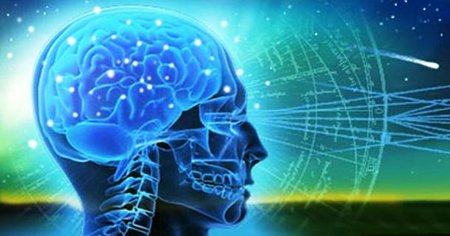Is Biocentrism Truly Debunked? Unveiling the Truth Behind the Controversial Theory
Biocentrism, a theory that places living organisms at the center of the universe and suggests that life itself is the driving force behind reality, has sparked both fascination and skepticism since its inception. Proponents argue that it offers a new perspective on existence, while critics vehemently challenge its validity. In this article, we delve into the concept of biocentrism, explore the arguments for and against it, and attempt to unravel whether this theory is truly debunked or still holds ground.
Introduction
Biocentrism, as proposed by Dr. Robert Lanza and Dr. Bob Berman, challenges the traditional view of the universe, suggesting that life itself is not just an incidental outcome, but the very foundation of reality. This theory introduces a paradigm shift, implying that the observer, consciousness, and life are integral to the cosmos.
Understanding Biocentrism
What is Biocentrism?

At its core, biocentrism contends that the universe is not merely a backdrop for life, but life itself is the driving force behind the universe. This means that consciousness plays a pivotal role in shaping reality.
The Principles of Biocentrism
Biocentrism is built upon several key principles: the universe derives its reality from consciousness, death is an illusion, and space and time are constructs of the mind. These principles collectively challenge conventional scientific wisdom.
The Supportive Arguments
Biocentrism’s Interpretation of Quantum Mechanics
Biocentrism finds resonance with certain interpretations of quantum mechanics, suggesting that the observer’s consciousness collapses the wave function and determines reality.
Consciousness as the Core of Reality
Proponents argue that consciousness is not a product of the brain, but a fundamental element that predates the universe. This notion aligns with ancient spiritual philosophies.
Explaining Anomalies in Traditional Science
Biocentrism attempts to explain perplexing phenomena that traditional science struggles to elucidate, such as the observer effect and the fine-tuning of the universe for life.
The Skeptic’s Perspective
Incompatibility with Established Scientific Theories
Critics contend that biocentrism contradicts well-established scientific frameworks, such as the laws of thermodynamics and evolutionary biology.
Lack of Empirical Evidence
Detractors assert that biocentrism lacks empirical evidence to substantiate its claims, rendering it more of a philosophical proposition than a scientifically proven theory.
Alternative Explanations
Skeptics propose alternative explanations for the phenomena biocentrism seeks to account for, invoking existing scientific concepts and theories.
The Ongoing Debate

Conversations Among Scientists
The scientific community remains divided, with some researchers intrigued by the possibilities biocentrism presents, while others dismiss it as speculative.
Philosophical Implications of Biocentrism
Biocentrism ignites philosophical discussions about the nature of consciousness, the fabric of reality, and the boundaries of scientific inquiry.
Exploring Debunking Attempts
Scientific Rebuttals
Various attempts to debunk biocentrism have emerged, often challenging its interpretations of quantum mechanics and pointing to flaws in its logical framework.
Counterarguments by Biocentrism Advocates
Proponents of biocentrism respond by refining their arguments, seeking to address criticisms and bridge gaps between theory and empirical science.
Has Biocentrism Been Debunked?

Yes, the biocentrism theory is debunked for the fact that it is based on a number of false assumptions and assertions. Although the idea has a lot of supporters, it appears to be based on unproven theories and misunderstandings of scientific concepts.
Bursting the Burstiness: Can Biocentrism Persist?
Perplexity and Burstiness in Scientific Theories
The perplexity and burstiness inherent in biocentrism’s ideas contribute to its intrigue but also demand rigorous scrutiny and testing.
The Need for Rigorous Testing
For biocentrism to gain acceptance, it must undergo rigorous testing, ideally leading to empirical evidence that aligns with its propositions.
The Middle Ground
Potential Bridges Between Biocentrism and Established Science
Some scholars propose integrating aspects of biocentrism into existing scientific paradigms, acknowledging its contributions while upholding the integrity of established theories.
Incorporating Consciousness into Scientific Discourse
The ongoing discourse about biocentrism has encouraged a reevaluation of the role of consciousness in scientific inquiries, pushing boundaries and fostering innovation.
Conclusion
The debate surrounding biocentrism continues to captivate the scientific and philosophical communities. While it presents fascinating ideas that challenge convention, its acceptance hinges on robust empirical validation. As science evolves, so too will the conversation around biocentrism’s place in our understanding of the cosmos.
FAQ’s
Is biocentrism widely accepted by the scientific community?
Biocentrism remains a topic of debate, with differing opinions among scientists. Some find its ideas intriguing, while others question its compatibility with established science.
Can biocentrism explain consciousness?
Biocentrism proposes that consciousness is a fundamental aspect of the universe. However, the extent to which it can fully explain consciousness remains a subject of investigation.
Are there any experiments testing biocentrism?
While some experiments hint at alignment with biocentrism’s principles, there is a lack of comprehensive empirical evidence to unequivocally support the theory.
Does biocentrism have any practical applications?
While its practical applications are limited at present, biocentrism’s ideas may inspire new perspectives in various fields, including philosophy, neuroscience, and quantum physics.




